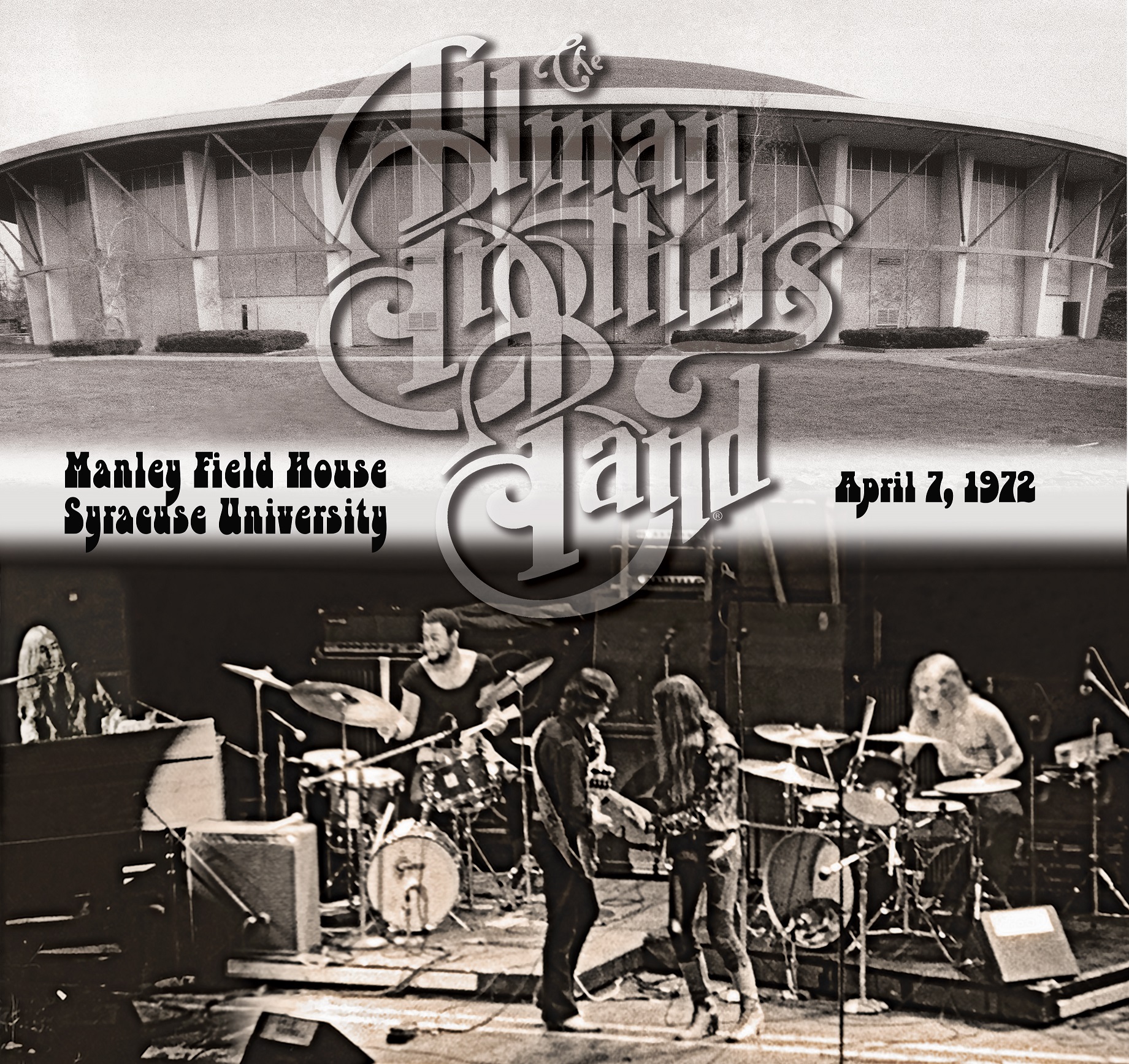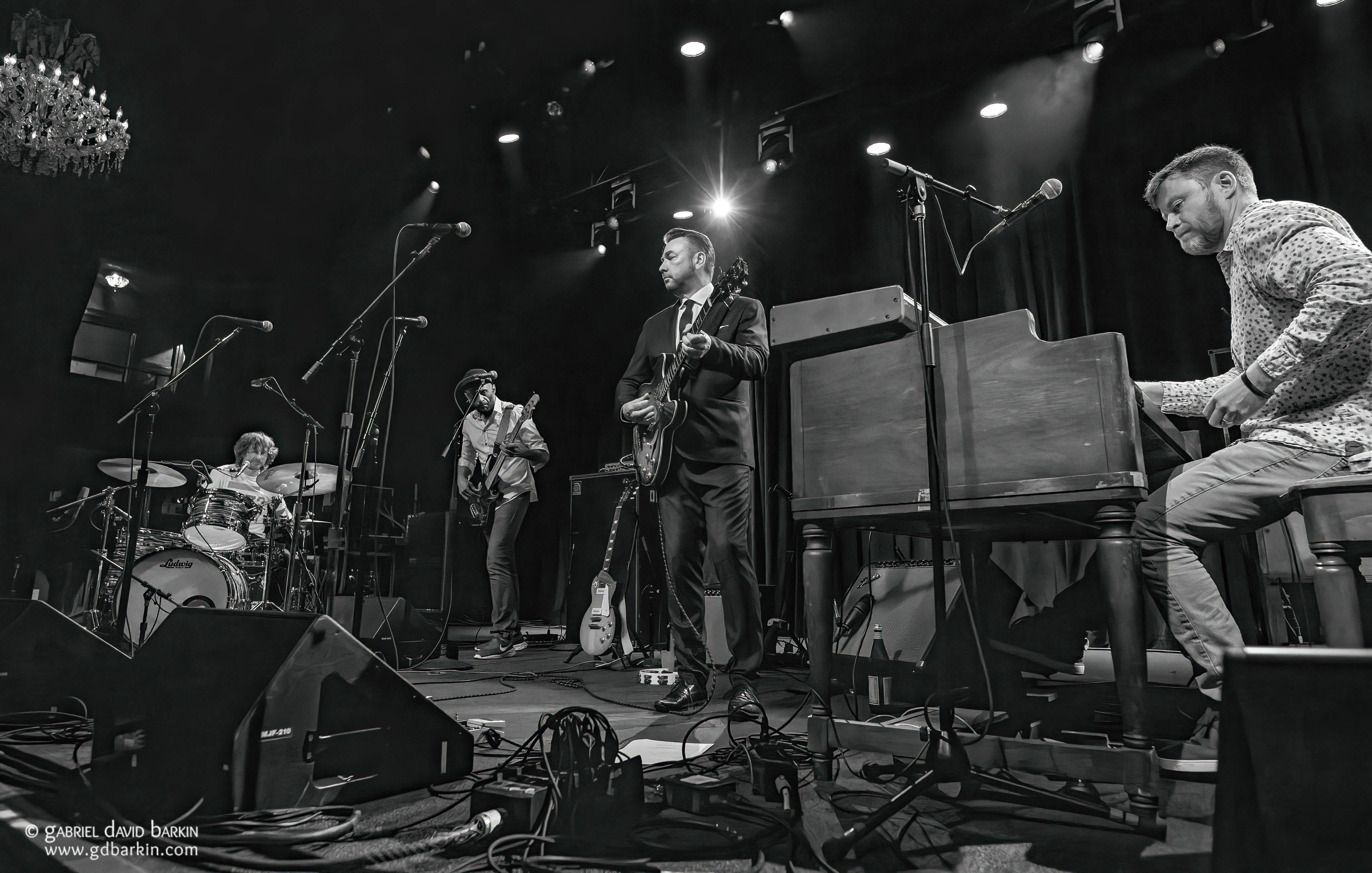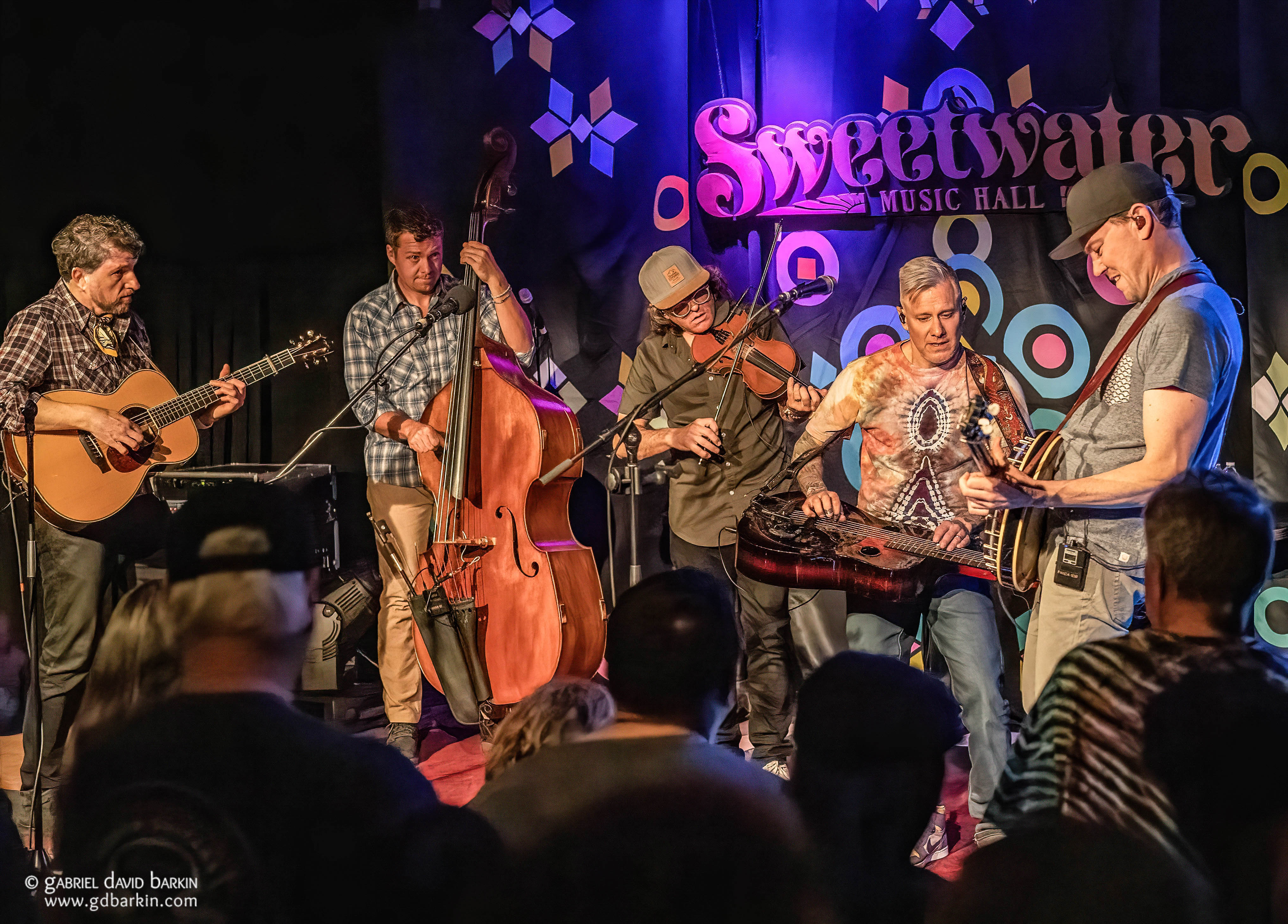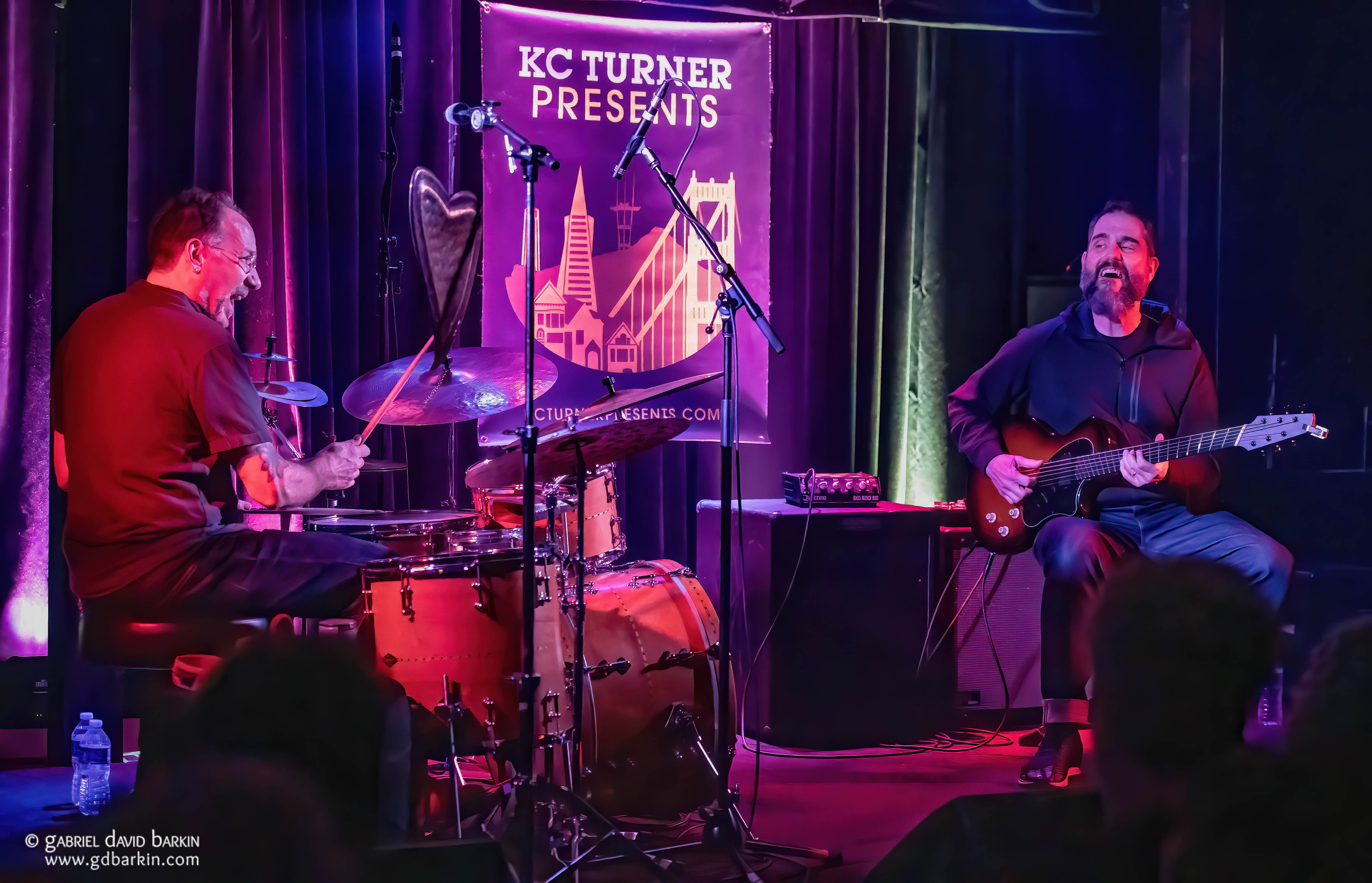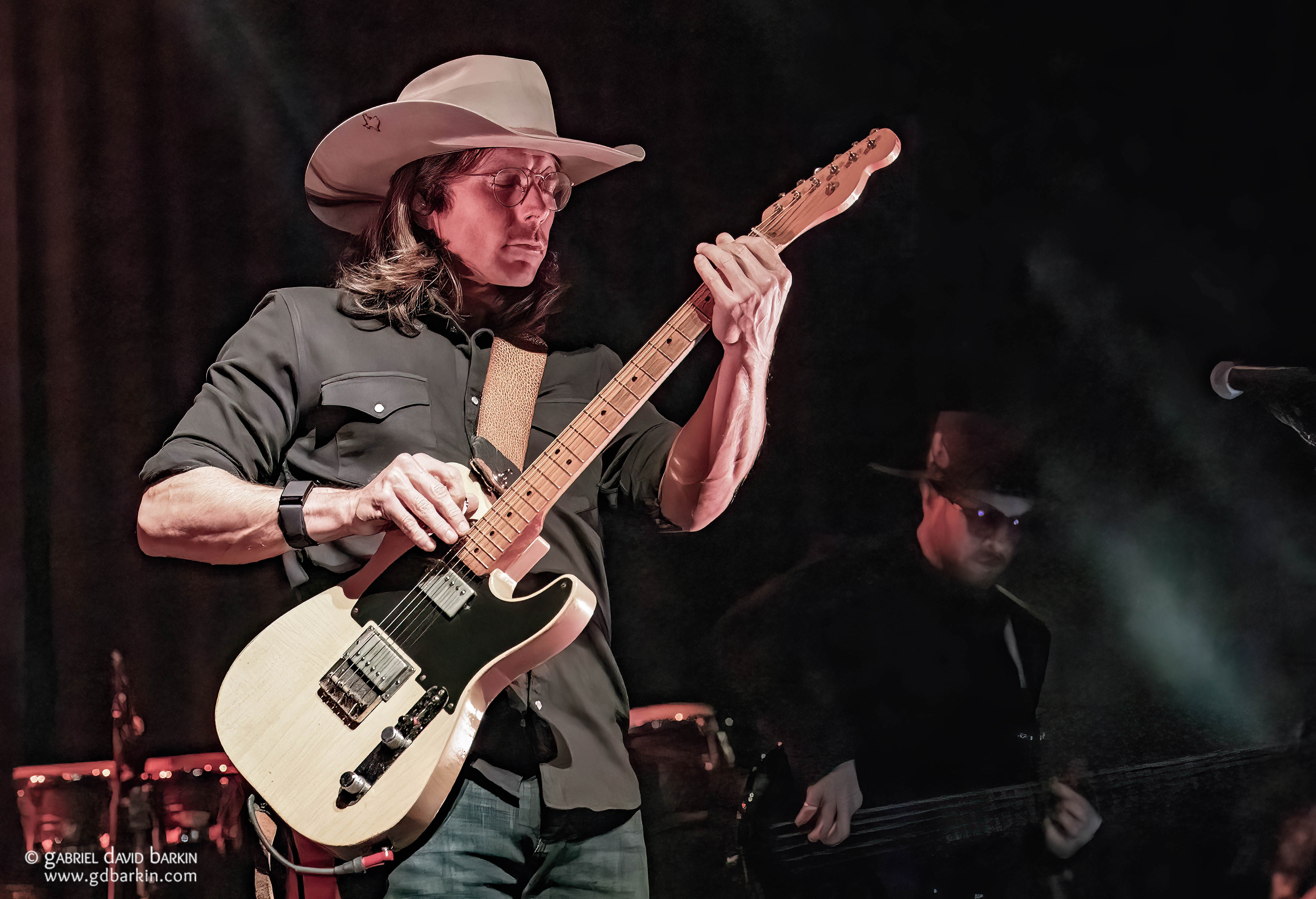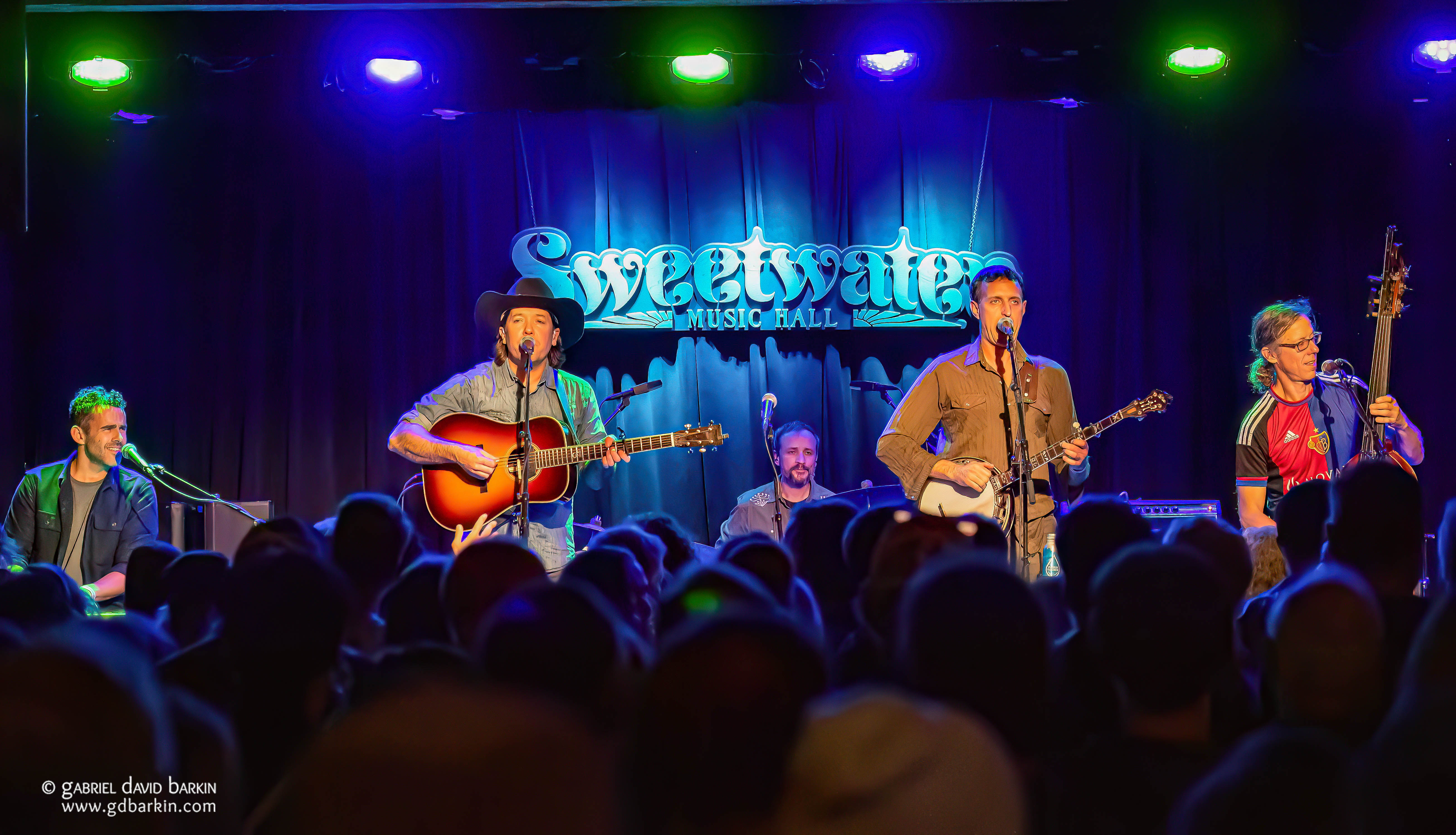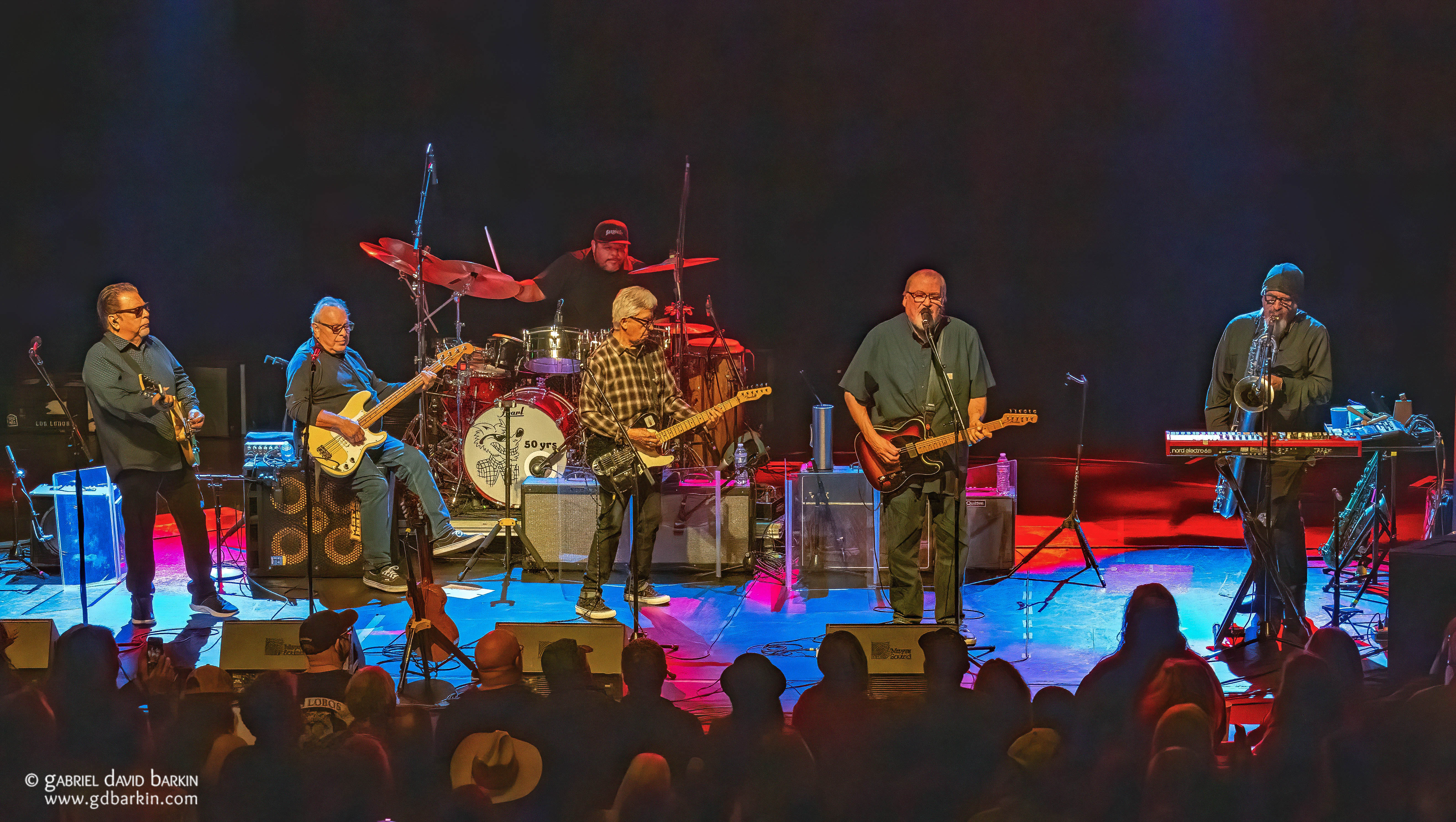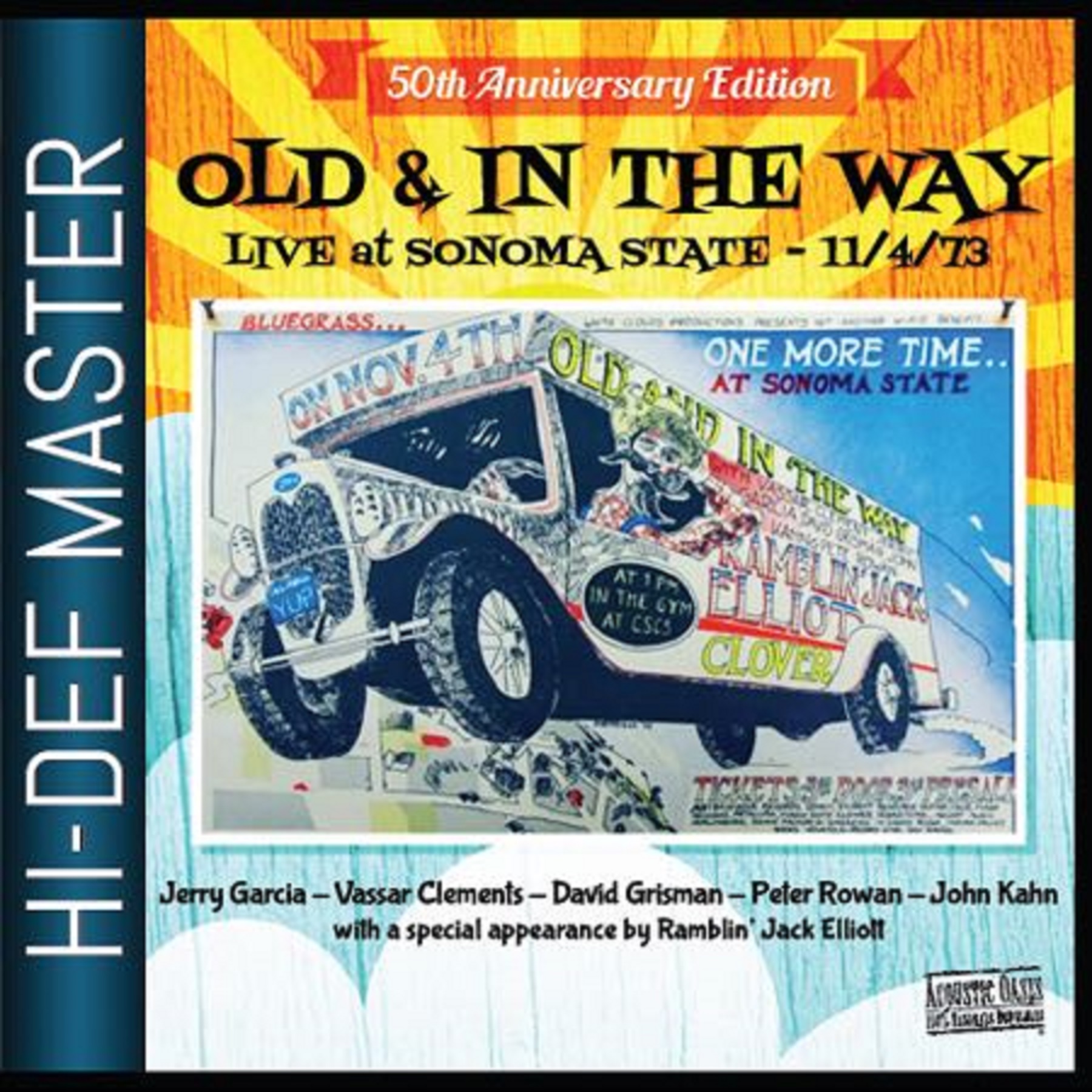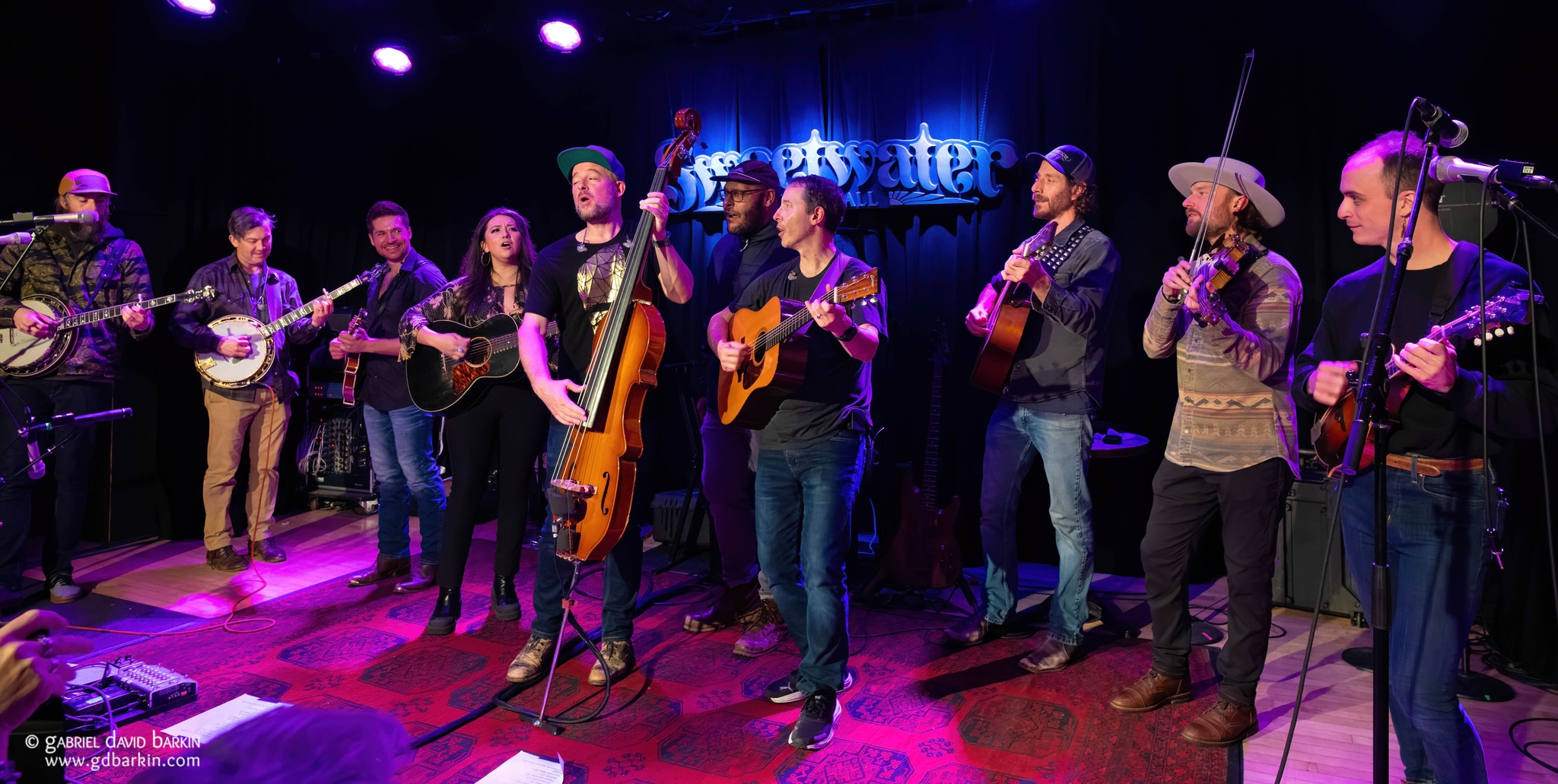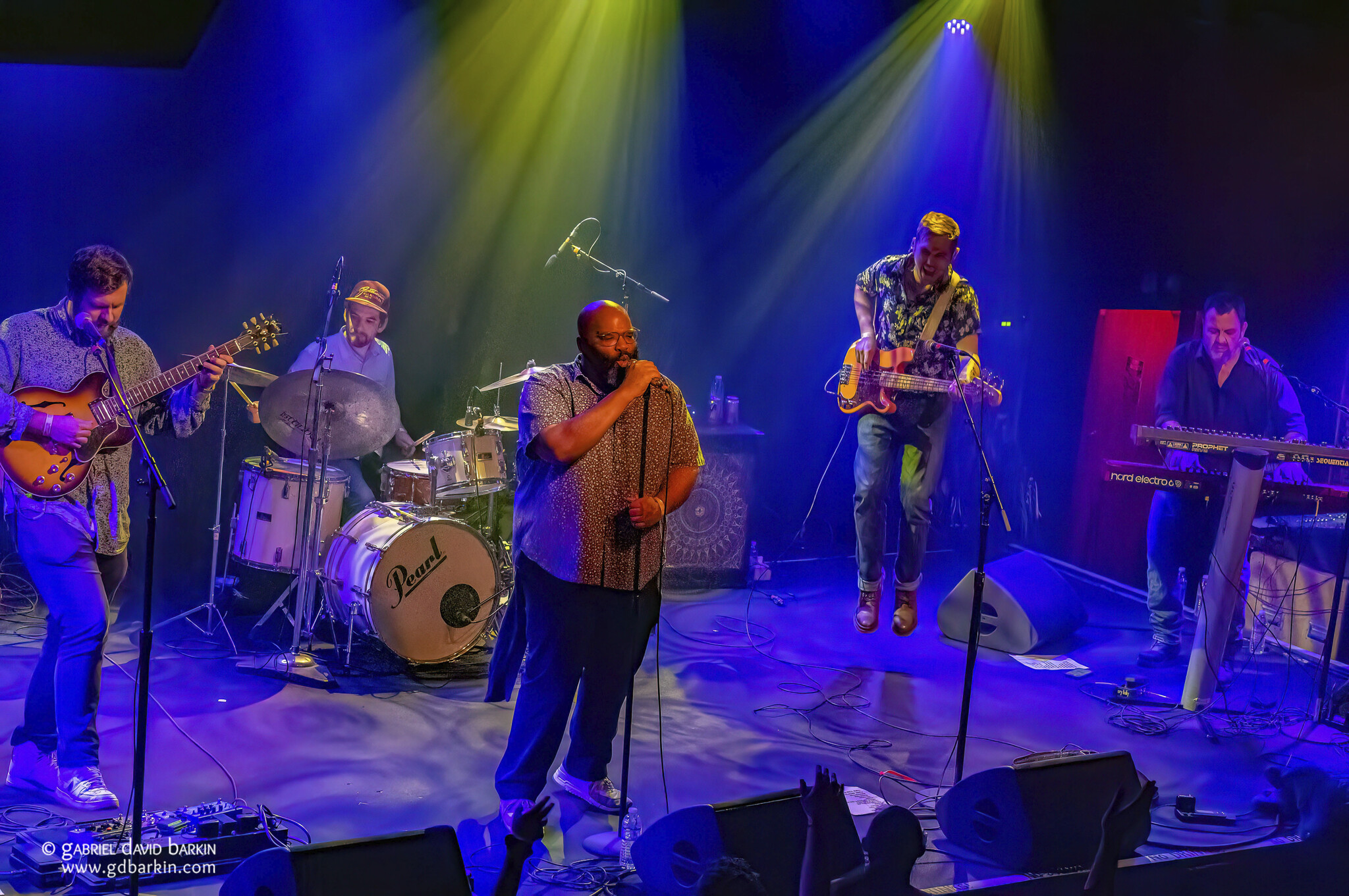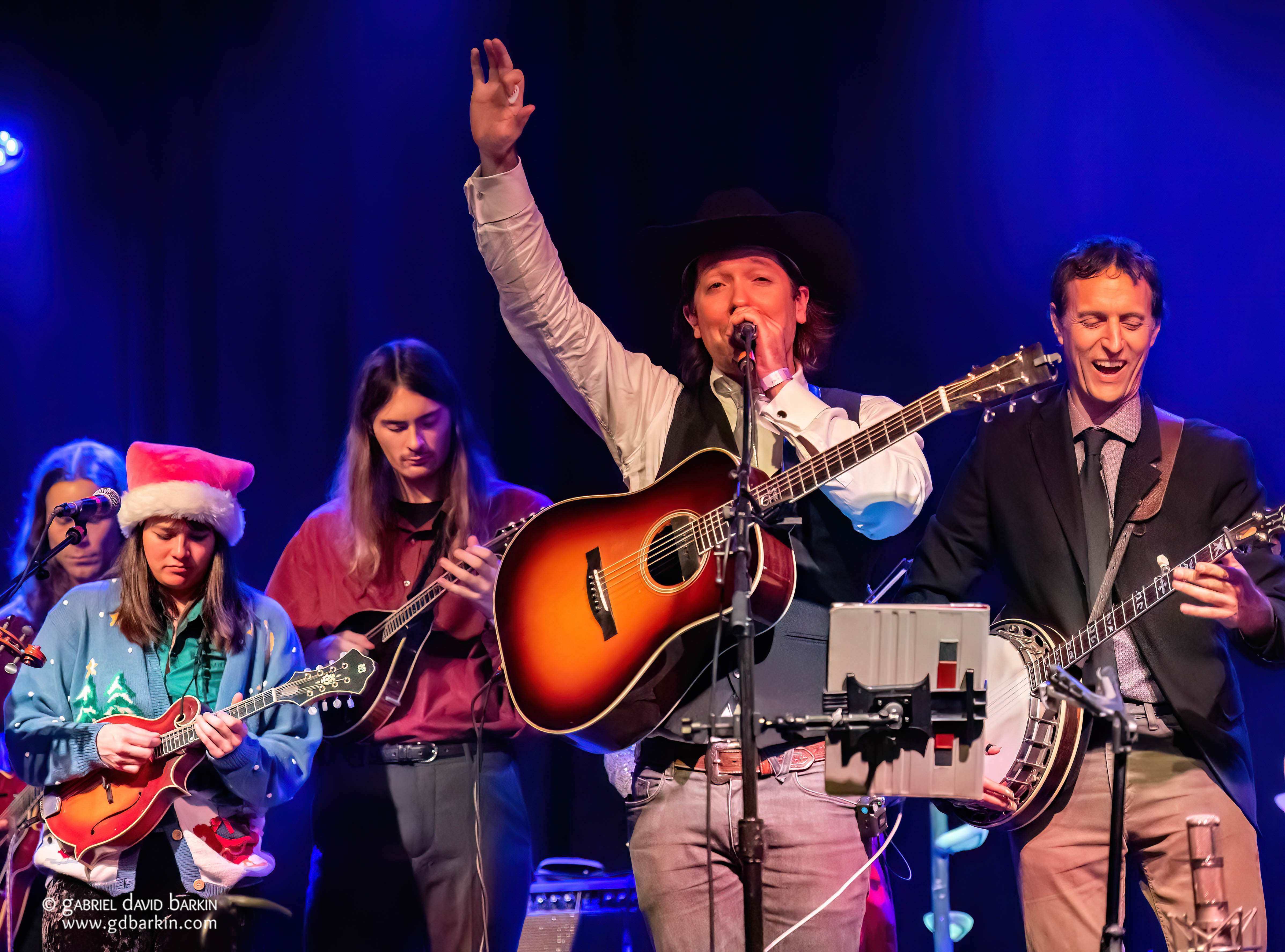“Best Damn Band We’re Ever Gonna Hear.”
Following the untimely death of Duane Allman, the Allman Brothers moved forward without dropping a beat. Brother Duane had died in late October 1971. Barely three weeks later, the band was back on stage in Upstate New York with a lineup composed of the remaining five original members – Gregg Allman on vocals and keyboard, Dickey Betts on guitar, Berry Oakley on bass, and drummers Butch Trucks and Jaimoe at the back of the stage. The “Five-Man Band” period, featuring Betts solely on lead guitar, lasted for just a few more months before Chuck Leavell joined to augment Gregg Allman on keys. Oakley died soon thereafter.
In April 1972, the short-lived “Five-Man Band” version of the Allman Brothers appeared at Manley Field House on the Syracuse University campus. Campus radio station WAER aired the show live. Bootlegs of the show have circulated for decades. Now, the band is at long last releasing this seminal show in the highest possible audio quality preserved from the direct source. The 11-track, two-disc CD will be available on January 12, 2024, from the Allman Brothers Band Recording Company.
“Eat a Peach,” the Allman Brothers’ fourth record, was released in February 1972, just a few months prior to this appearance. Only two cuts from that double-disc album (which featured both studio and live recordings) made the setlist at Manley Field House. Gregg Allman’s “Ain’t Wastin’ Time No More” was written for his brother, and it was a fitting inclusion to honor Duane’s absence. The blues classic “One Way Out” followed “Wastin’ Time” in the Syracuse show. The rest of the setlist draws from the band's earlier catalog.
Betts had taken on a revised role at this time. In the absence of Duane, the other guitar-playing “brother” had to take on many of the iconic slide parts in the group’s catalog. In one interview at the time, he said, “I did play some slide before Duane and I started working together but did not play very well. But after he got killed, I had to take over. Songs like ‘Statesboro Blues’ and some of the others would have sounded silly without it.” He also started singing more (although this record is all Gregg songs).
This recording captures Betts during the earliest phase of this period, and it is evident that indeed he had learned to play Duane’s licks admirably by this time. Betts pays worthy homage to Duane during the show opener at Manley Field House; “Statesboro Blues” is a song that leans heavily on its countrified slide melodies and solo. Likewise, “Done Somebody Wrong” gives Betts a chance to strut on a few bottleneck leads. And notably, Betts also contributed his original slide work in the Syracuse show during the tribute to Duane, “Ain’t Wastin’ Time No More.”
But those are the first three songs, and Betts sticks to his fingers on the frets for the bulk of the show after the three opening cuts.
Certainly, Betts sounds more relaxed and “in the zone” when his fingers, not a slide, are on the fretboard. His blues licks following Gregg’s organ solo on “Stormy Monday,” for instance, are as polished and emotional as ever. In “You Don’t Love Me,” Betts’ false-ending crescendo at the 5:10 mark gives way to some truly plaintive solo work (you can imagine the spotlight on him while the band stays quiet) before a reprise. As if that’s not enough, they take it all down again for yet one more jam to showcase their lone lead guitarist while Trucks and Jaimoe rebuild the energy from the ground up. This is classic Betts at his finest.
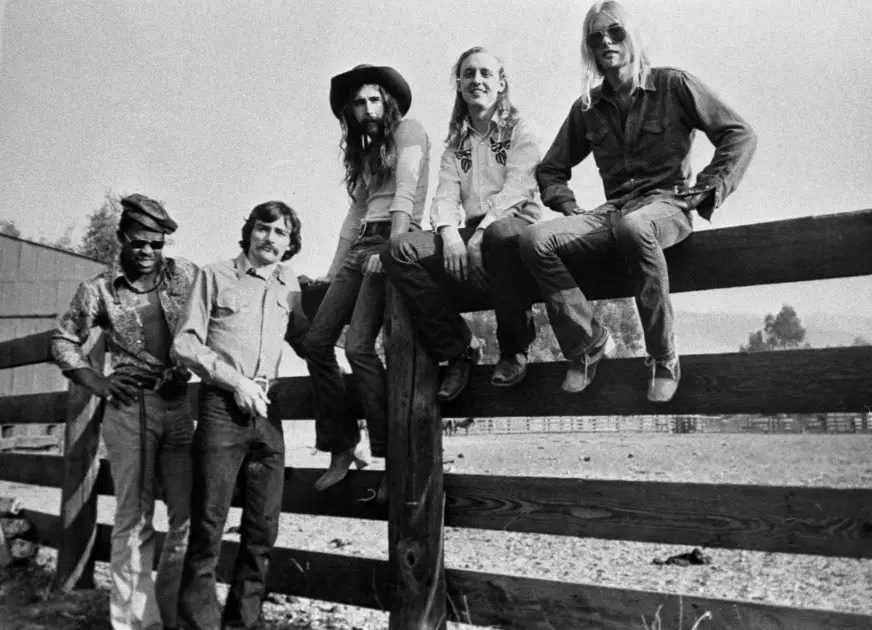
The Allman Brothers have had a plethora of amazing guitar players in their lineup, mostly two at a time (the latter-day version with Warren Haynes and Derek Trucks was notably delicious), but the Betts-only years had their own magic steeped in the blues maestro’s own blend of Southern comfort. Listeners who are not familiar with this era might miss the dueling and dueting guitars on “In Memory of Elizabeth Reed.” But on the other hand – lots more Dickey solos!
Unfortunately, the Allman Brothers have also had more than their fair share of stellar bass players, due to the passing of founding member Berry Oakley later in 1972. At Manley Hall, Oakley delivers a strong performance, particularly when holding the floor down during Gregg Allman’s solo on “Elizabeth Reed” and throughout the improv “Syracuse Jam” toward the end of the show. The latter peaks with Oakley high on the neck of his bass before the ensemble mellows into a spacey drum-heavy coda punctuated by Gregg’s organ. Oakley also has a thunderous bass solo in “One Way Out” that must have shaken the chandeliers all across the Syracuse University campus.
The way the mics captured Oakley may be the best thing about this recording. His Fender Jazz “Tractor” bass is prominent on every cut. It’s rare to truly "feel" the bass so clearly on a live recording from this era; kudos to the engineers for nailing it. Hard to say whether Oakley was stepping it up to fill Duane’s void, or if he’s more noticeable simply because there’s one fewer instrument on stage. Regardless, it’s a treat to reflect on his skill when listening to Manley Hall. Oakley fans in particular will relish this album.
Regrettably, the vocals and organ are often a bit muddied on Manley Hall. The recording does have a “bootleg” ambiance throughout. Fortunately, it’s easy to forgive the audio quality because the instrumentalization is so tight.
That being said, Gregg Allman shines more on organ than he does on vocals in this performance. The words are recited second-naturedly at points, but his Hammond is alive as ever with churchlike verve. Whether he felt overtly mournful for his dear departed brother during his “Stormy Monday” solo is unknowable, but it sure sounds like he is pouring his heart into every key.
The same can be said of “Midnight Rider.” With Betts singing along on the refrains, Allman’s vocal is strong, but it’s his organ that speaks loudest and tells more of the story. On the other hand, even after singing hundreds of “Whipping Posts” by this point, he sells the story to the Syracuse crowd like a rapturous itinerant preacher in the closing minutes. Even just going through the motions, there’s no blues singer like Gregg Allman.
Butch Trucks and Jaimoe are in fine form for this outing. Side-by-side drum kits have become a staple of the jam band circuit (and of course, the Grateful Dead had their Rhythm Devils too), but no duo has ever eclipsed the original Allman Brothers percussion team. A 90-minute show doesn’t afford Trucks and Jaimoe a lengthy drum break, but they do get a minute here and thirty seconds there unaccompanied by the rest of the band during the Syracuse show to stretch out.
The drummers are the real stars during the improv “Syracuse Jam” toward the end of the show. The interplay between Trucks and Jaimoe is joyous and bluesy, especially in the last minute of this unique jam. Oakley and Betts fill in the corners with tasty noodles to accompany the rhythmic interplay on this cut, which seems to have been played once and only once in the Allman Brothers' history.
A lively “Hot ‘Lanta” brings the show to a close. Following a barnstorming recital of the band's paradigmatic melody-led instrumental, Trucks and Jaimoe share one last, all-too-brief moment in the spotlight before the quintet says a melodic “goodnight.”
At just shy of 90 minutes, Manley Field House, Syracuse University, April 7, 1972, feels too brief. Perhaps not as short, of course, as the young lives of Duane Allman, whose absence was still notable at the time, and Berry Oakley, whose departure was imminent. But the “Five-Man Band” era was likewise short-lived, and we are fortunate to have this snapshot for our memory book.
Manley Field House, Syracuse University April 7, 1972 tracklist:
Disc One:
Introduction
Statesboro Blues
Done Somebody Wrong
Ain’t Wastin’ Time No More
One Way Out
Stormy Monday
You Don't Love Me
Disc Two:
In Memory Of Elizabeth Reed
Midnight Rider
Whipping Post
Syracuse Jam
Hot ‘Lanta






